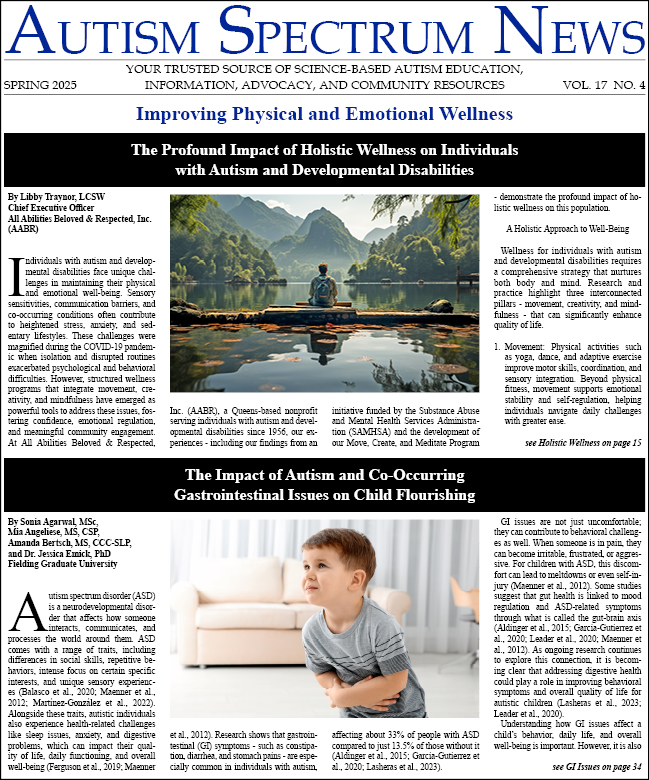-
Autism Science Foundation Announces 2014 Grant Recipients
The Autism Science Foundation, a not-for-profit organization dedicated to funding autism research, has announced the recipients of its 2014 annual pre and post-doctoral fellowships as well as the recipients of its first undergraduate summer research grants. Pre and Postdoctoral Research...
-
NIH Study Finds Attention to Others’ Eyes Declines in 2 to 6-Month-Old Infants Later Diagnosed with Autism
Eye contact during early infancy may be a key to early identification of autism, according to a study funded by the National Institute of Mental Health (NIMH), part of the National Institutes of Health. Published this week in the journal Nature, the study reveals the earliest sign of developing...
-
Studies Map Gene Expression Across Brain Development
Now that genetic studies have implicated several hundred genes in autism, researchers are turning their attention to where and when in the healthy young brain these genes are expressed. The first two studies to tackle these questions appeared on November 21, 2013 in Cell. One report, led by...
-
Autism Science Foundation Announces 2013 Research Enhancement Grant Recipients
On November 12, 2013, the Autism Science Foundation, a not-for-profit organization dedicated to funding autism research, announced the recipients of research enhancement mini grants. These grants are intended to enable researchers to expand the scope or increase the efficiency of existing grants,...
-
Mount Sinai Researchers Receive NIH Grant to Study Promising Treatment for Autism Subtype
Scientists at the Seaver Autism Center at the Icahn School of Medicine at Mount Sinai have received a grant from the National Institutes of Health (NIH) to study Insulin-Like Growth Factor-1 (IGF-1), a promising treatment for a subtype of autism called Phelan McDermid Syndrome (PMS). The grant...
-
Doctoral Study Shows Parents are Concerned for Their Adult Child’s Future
The process of transitioning to adulthood is always difficult for parents; more so when their children have special needs. For parents of young adults with ASD the challenges are manifold, including but not limited to financial problems, social difficulties and long term care and planning. Long...
-
Robots as Co-Therapists in Behavior Therapy for Individuals with ASD
Recent technological advances have opened the possibility of using robots in therapy for individuals with Autism Spectrum Disorder (ASD). This approach has received a lot of press, but to date most research has focused on developing the robots rather than clinical issues related to the use of...
-
Study Demonstrates That Children with Autism Can Learn to Stand Up to Bullies
The Autism Research Group, along with the Center for Autism and Related Disorders, published a study in the current issue of the journal “Research in Autism Spectrum Disorders” on teaching children with autism to detect and respond to lies told by others attempting to bully them. A research...
-
Twin Study Suggests Girls are Protected From Autism Risk
A comparison of autism-like behaviors in nearly 10,000 pairs of fraternal twins suggests that girls are somehow protected from the disorder1. The findings, published 19 February in the Proceedings of the National Academy of Sciences, may partly explain why autism is four times more common in boys...
-
Insomnia and Anxiety May Be Linked in Individuals with ASDs
More than half of children with Autism Spectrum Disorder (ASD) also experience clinically significant problems with anxiety (Sukhodolsky et al., 2008). New research conducted at the Center for Autism Research (CAR) at The Children’s Hospital of Philadelphia and the University of Pennsylvania...






